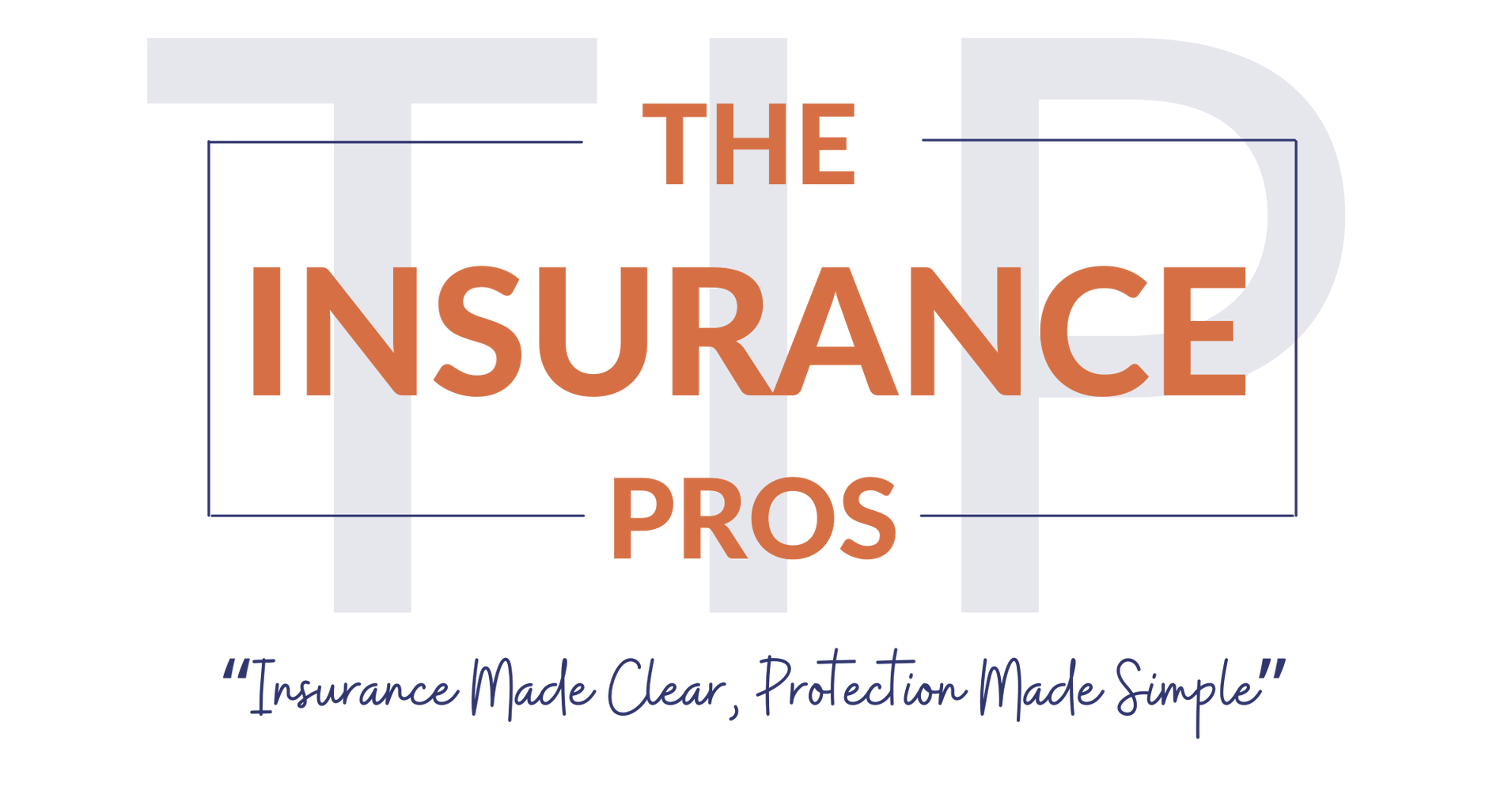Safeguarding Your Digital Identity: A Comprehensive Guide to Identity Theft Insurance
Safeguarding Your Digital Identity: A Comprehensive Guide to Identity Theft Insurance

Introduction to Identity Theft Insurance
Identity theft is a modern menace, affecting millions globally. It involves the unauthorized acquisition and use of someone's personal information for fraudulent purposes. As digital footprints expand, the risk of personal data being stolen or misused has significantly increased. This alarming trend underscores the rising need for identity theft insurance.
Identity Theft Insurance is designed to provide a safety net in the ever-evolving digital world. It's not just about financial loss; the emotional and time-related burdens that come with restoring one's identity are immense. This insurance offers peace of mind, knowing there's support available in case your personal information is compromised.
What Does Identity Theft Insurance Cover?
Identity Theft Insurance offers a wide range of coverage to safeguard individuals from various fraudulent activities. Key aspects include reimbursement for money spent on reclaiming your financial identity, such as legal fees, lost wages, and expenses related to paperwork.
For instance, if someone steals your identity to open fraudulent credit accounts, the insurance may cover the costs incurred while resolving these credit disputes. It's not just about direct financial fraud; coverage can extend to addressing issues like wrongful criminal or medical record allegations due to identity theft. This comprehensive approach is crucial in providing complete protection.
The Cost of Identity Theft and the Value of Insurance
The financial implications of identity theft can be devastating. Victims often face significant monetary losses, including drained bank accounts and credit card fraud. Beyond the immediate financial damage, the long-term effects, such as impaired credit scores and reputational harm, can be equally distressing.
Identity Theft Insurance is a valuable tool in mitigating these costs. By covering expenses related to legal advice, credit monitoring, and identity restoration, the insurance provides not just financial relief but also expert guidance through the recovery process. The value of this insurance transcends monetary aspects, offering reassurance in times of personal crisis.
How to Choose the Right Identity Theft Insurance Policy

Factors to Consider
Comparing Policies and Providers
Identity theft insurance policies vary, and choosing the right one requires careful consideration. Key factors include the extent of coverage, the limits on reimbursement, and any deductibles. It's crucial to understand what is and isn't covered. For example, some policies might cover legal fees but not the expenses related to mental health counseling if it's needed due to the stress of identity theft.
Comparing policies and providers is also essential. Look for insurers with a strong track record of handling identity theft claims efficiently. Customer reviews and ratings can offer insight into their service quality. Moreover, check if the policy includes services like credit monitoring or identity restoration assistance, which can be invaluable in preventing and addressing identity theft.
Preventing Identity Theft: Tips and Best Practices
- Proactive Measures to Protect Your Identity
- The Role of Insurance in Identity Theft Prevention
While insurance is a critical safety net, proactive measures are key to preventing identity theft. Regularly monitoring your credit reports, using strong and unique passwords for online accounts, and being cautious about sharing personal information are foundational steps. Additionally, consider services like credit freezes or fraud alerts if you suspect your information has been compromised.
Insurance plays a supportive role in prevention by often offering credit monitoring services. Some policies provide alerts about suspicious activities, which can be crucial in stopping identity theft early on. Educating policyholders about safe data practices is another way insurers contribute to the overall prevention of identity theft.
Identity Theft Insurance for Businesses
- The Necessity in Today's Digital Economy
- Coverage and Benefits for Businesses
Businesses are not immune to the threats of identity theft. In fact, the stakes are often higher due to the vast amount of sensitive customer and business data they handle. Identity theft insurance for businesses covers not just financial losses but also helps in dealing with the legal, operational, and reputational aspects of such breaches.
Coverage might include legal defense costs, notification expenses to customers affected by a data breach, and even public relations efforts to manage reputation damage. For businesses in today's digital economy, this insurance is not just an option but a necessity, providing a crucial layer of protection in a landscape where cyber threats are increasingly sophisticated.
The Claims Process in Identity Theft Insurance
- Understanding the Steps Involved
- How to Efficiently File a Claim
Navigating the claims process in identity theft insurance is crucial for efficient resolution. The first step is to report the identity theft to the insurer as soon as possible. Policyholders should be prepared to provide detailed information and any evidence of the theft, such as fraudulent transactions or correspondence.
Efficiency in filing a claim is key. This involves timely notification, thorough documentation, and following the insurer's guidelines. Many insurers offer online platforms or dedicated helplines to assist in this process. The smoother the claims process, the quicker the path to recovery and restoration of one's identity.
Legal Aspects of Identity Theft and Insurance Coverage
- Understanding Your Rights
- How Insurance Assists in Legal Proceedings
The legal aspects of identity theft can be complex. Victims have certain rights, such as the right to dispute fraudulent debts and the right to obtain documents related to fraudulent transactions made in their name. Understanding these rights is crucial in navigating the aftermath of identity theft.
Identity theft insurance often plays a vital role in legal proceedings. Many policies provide coverage for legal fees and advice. This support can be invaluable, especially when dealing with complex legal issues or when it's necessary to take legal action against perpetrators or to correct records with credit bureaus and financial institutions.
Future Trends in Identity Theft and Insurance Solutions
- Evolving Nature of Identity Theft
- Innovative Insurance Solutions for Future Challenges
As technology advances, the nature of identity theft evolves, presenting new challenges. Cybercriminals are constantly developing sophisticated methods, such as deepfake technology and AI-driven scams. In response, insurance solutions are also evolving, with insurers increasingly focusing on innovative approaches to detect and prevent identity theft.
Future trends in insurance solutions may include more advanced monitoring technologies, AI-driven anomaly detection, and personalized risk assessments. These innovations aim not only to respond to identity theft incidents but also to proactively prevent them, marking a shift from reactive to predictive and preventive strategies in identity theft insurance.
The Claims Process in Identity Theft Insurance
- Understanding the Steps Involved
- How to Efficiently File a Claim
Navigating the claims process in identity theft insurance can be daunting, but understanding the steps involved can make it manageable. Initially, it's vital to report the identity theft to the insurer as soon as possible. Documentation is key; this includes police reports, bank statements, and any correspondence related to the theft.
Efficiently filing a claim involves clear communication with your insurer. Provide all necessary documentation promptly and follow their guidance. Insurers often have dedicated teams for identity theft claims, offering expert advice and support throughout the process.
Legal Assistance and Identity Theft Insurance
- The Role of Legal Support in Identity Restoration
- Access to Legal Services through Insurance
Legal assistance is often a crucial component of identity theft insurance. The complexities of identity theft can involve various legal areas, from consumer law to criminal law. Having access to legal advice and representation can be invaluable in navigating these challenges.
Many identity theft insurance policies include access to legal services, either in-house or through a network of attorneys. These services can range from consultation on your rights to representation in court if necessary. This legal support is instrumental in efficiently restoring your identity and addressing any legal ramifications of the theft.
The Future of Identity Theft Insurance
- Trends and Innovations in the Industry
- Adapting to the Evolving Landscape of Cyber Threats
The landscape of identity theft and consequently, identity theft insurance, is constantly evolving. Emerging trends include the integration of advanced technologies like AI and blockchain for better fraud detection and prevention. Insurers are also focusing on offering more personalized policies, catering to the specific risks and needs of individuals and businesses.
Adapting to new forms of cyber threats is crucial for the future of identity theft insurance. This includes staying abreast of methods like phishing, malware, and social engineering attacks. Insurers must continually innovate to provide robust protection in a digital world where threats are ever-changing and increasingly sophisticated.
Customer Testimonials and Case Studies
- Real-Life Examples of Identity Theft and Insurance Impact
- Lessons Learned from Past Incidents
Customer testimonials and case studies are powerful tools in understanding the real-world impact of identity theft insurance. Real-life examples where insurance played a pivotal role in resolving identity theft issues provide invaluable insights. These narratives often highlight the emotional and financial turmoil victims experience and how insurance can alleviate these burdens.
Case studies also serve as lessons on the importance of being prepared. They often reveal common vulnerabilities and effective strategies for identity theft prevention and resolution, showcasing the tangible benefits of having identity theft insurance.
Comparing Identity Theft Insurance with Other Types of Insurance
- Distinct Features of Identity Theft Insurance
- How It Complements Other Insurance Policies
While identity theft insurance is a relatively new product, comparing it with other types of insurance helps in understanding its unique place in risk management. Unlike traditional insurance policies that typically cover tangible assets, identity theft insurance focuses on intangible yet crucial aspects like personal data security.
It's important to note how this insurance complements other policies. For example, while homeowner's insurance may cover some aspects of fraud or theft, identity theft insurance specifically addresses the intricate process of identity recovery, which other policies might not cover.

Frequently Asked Questions About Identity Theft Insurance
- Common Queries from Potential Policyholders
- Expert Answers to Help in Decision Making
A section dedicated to FAQs is essential for addressing common queries about identity theft insurance. This includes questions about coverage limits, types of fraud covered, the claim process, and how premiums are determined. Providing clear, expert answers can help potential policyholders make informed decisions and understand the value of this insurance in protecting their identity.
FAQs
What exactly does identity theft insurance cover?
Identity theft insurance typically covers expenses related to recovering your identity, such as legal fees, lost wages, and costs for paperwork and postage.
Is identity theft insurance worth it?
Considering the increasing frequency and complexity of identity theft incidents, this insurance can be a valuable investment in protecting your personal and financial information.
How does identity theft insurance differ from credit monitoring services?
While credit monitoring services alert you to potential fraud, identity theft insurance provides financial coverage and support services for recovering from identity theft.
Can businesses benefit from identity theft insurance?
Yes, businesses can greatly benefit from identity theft insurance, as it helps protect against the financial and reputational damage caused by data breaches and fraud.
How do I choose the right identity theft insurance policy?
Evaluate factors like coverage extent, reimbursement limits, deductibles, and the insurer's reputation in handling identity theft claims.
Conclusion
Identity theft insurance emerges as a crucial safeguard in our increasingly digital world. It provides not just financial support but also expert guidance and emotional reassurance in the face of identity theft. From individuals to businesses, the importance of this protection cannot be overstated, especially as cyber threats continue to evolve.
As we look towards the future, staying informed and proactive about identity theft risks and insurance options is paramount. This insurance is more than a safety net; it's an essential component of comprehensive personal and business risk management.
Get in touch with us – where securing your digital life is just as important as a good laugh. Because let's face it, in a world where your personal details are as precious as an internet cat video, staying protected should never be boring!








CONTACT INFORMATION
Phone:
(847) 954-7787
Fax: (773) 423-9204
Email:
info@insurepros.net
BUSINESS HOURS
Monday - Friday 8:00 am to 5:00 pm
Saturday 8:00 am to 12:00 pm
Sunday Closed



